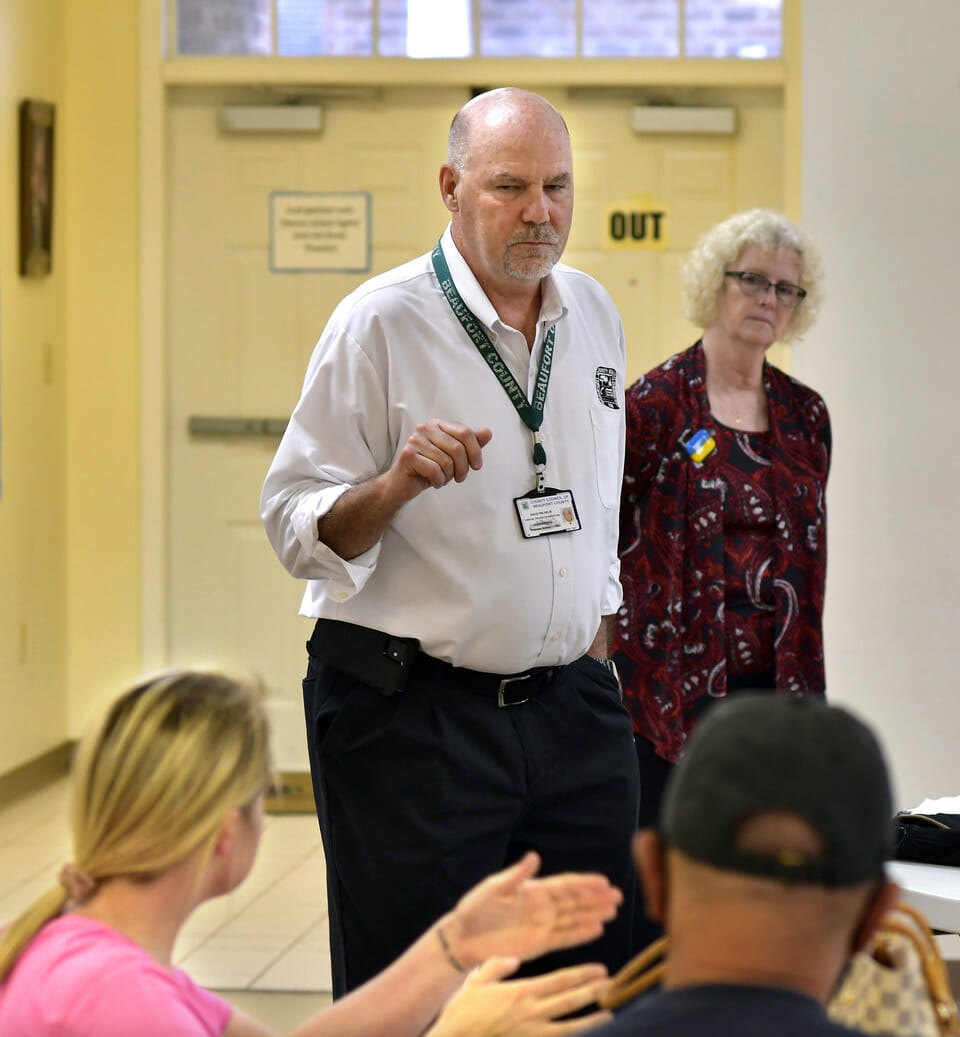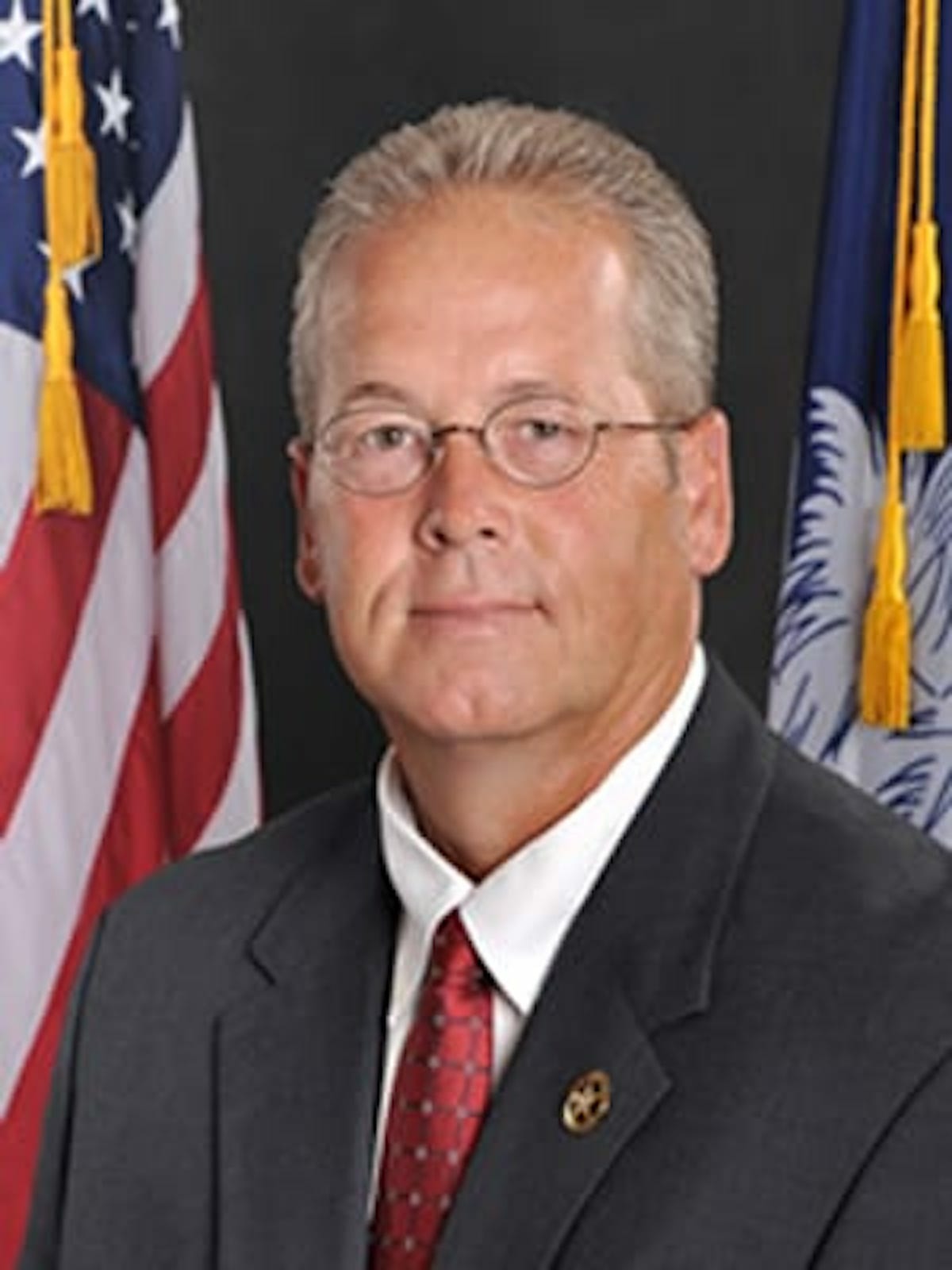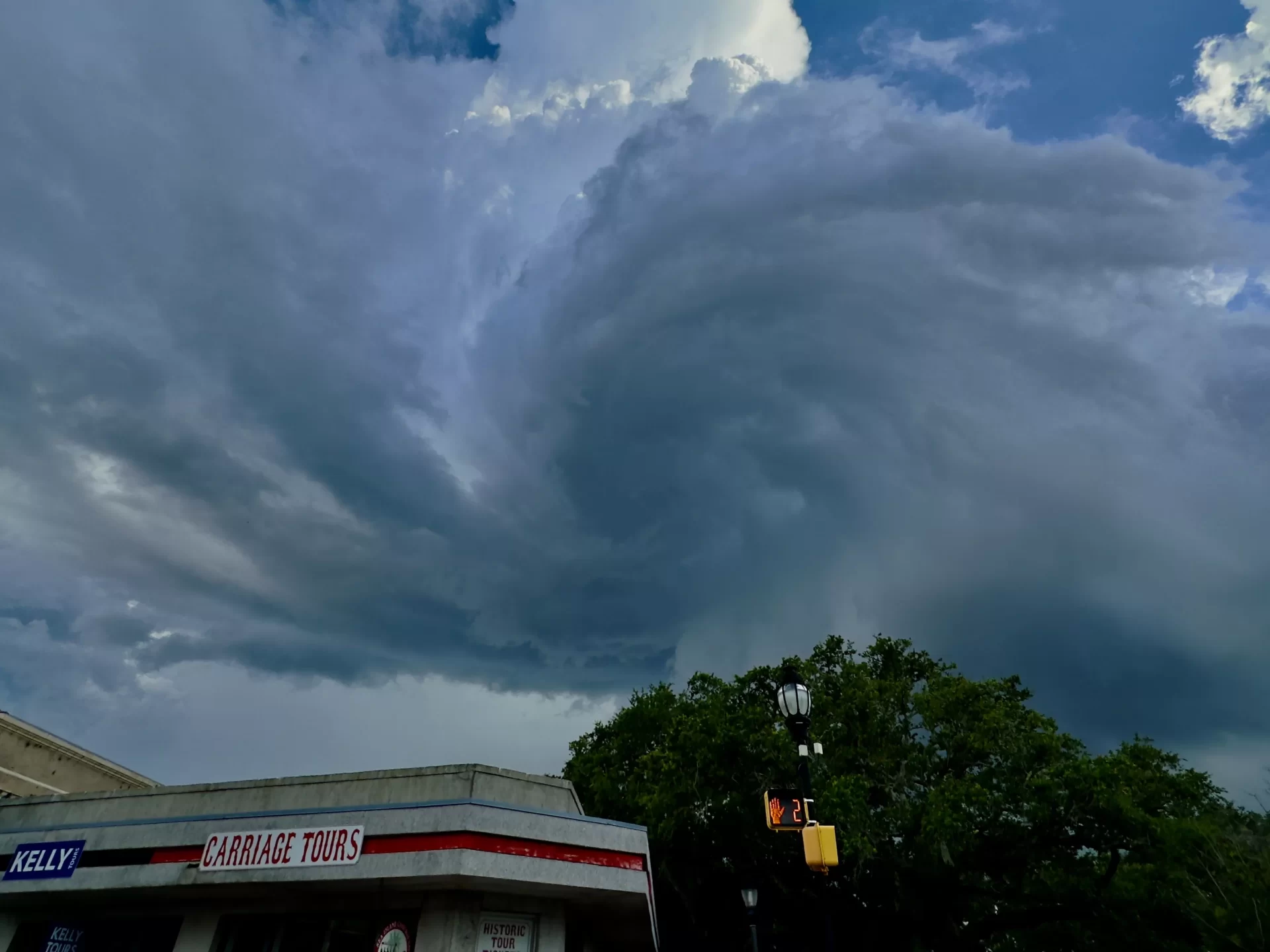By Tony Kukulich
Stormwater and traffic problems took center stage when Beaufort County Councilmember Alice Howard met with residents from the Shell Point community last week.
Howard, who represents District 4, provided updates on studies related to both of those topics as well as efforts under way to rectify the identified problems.
“Shell Point has had stormwater issues for a very long time,” Howard said. “The houses were built in the ’60s and ’70s, the majority of them. There was an existing ditch system when they were built, but it’s become overgrown. Some of it ran behind the houses. Some of it ran in front of the houses. We’ve had some public meetings about that. It’s been a process, several years. Now we’re at the point where we need to do major work.”
To help determine what that work should be, the county engaged a stormwater study in 2020, and it was completed the following year. Its intent was to ascertain where the problems were and how they could be remediated. The study looked at current conditions and what conditions could look like 50 years in the future. The forward-looking portion of the study considered how the area’s drainage system would operate if improvements were made and if no upgrades were implemented.
“There are several different jurisdictions that have infrastructure in that 800-acre neighborhood. We’ve got state roads,” Beaufort County Stormwater Manager Katie Herrera. “We’ve got county roads. We’ve got county easements, and there’s also the Town of Port Royal. It’s mostly residential, but there are some commercial projects within our study area. Over time, there has been a consistency of complaints about drainage issues and flooding.”
The research ultimately spawned eight projects intended to resolve problems in the Shell Point neighborhood.
A memo from Herrera to Howard dated April 6 estimated a total project cost in excess of $4 million and stated that an application for a grant had been submitted to the South Carolina Emergency Management Division for funding through the Hazard Mitigation Grant Program.
The memo also indicates that the county has published a request for proposal related to the project. It seeks firms to assist the county with the design and permitting for the projects proposed by the study. According to the memo, a firm is expected to be chosen before the start of the 2022-2023 fiscal year, which begins July 1.
“Now we’re trying to get these eight proposed projects off the ground by obtaining a design and engineer firm to help us with the design of the system, upgrades and changes, permitting and then eventually going to construction,” Herrera said. “So, it’s a multiyear project.”
Drainage problems in the area can be attributed to a number of sources. Poor maintenance of the drainage ditches is a prime factor. The elevation of the neighborhood is another contributing issue.

Because the neighborhood is very flat, floodwater tends to drain slowly. The low elevation also makes it possible for the marsh to enter the drainage pipes and ditches during flood events and flow into the residential areas instead of the other way around. Additionally, the drainage systems were designed for the environment of 50 or 60 years ago, they are simply overmatched by current conditions.
“The drainage conveyances just aren’t large enough to convey the flooding that the area experiences,” said Julianna Corbin, Beaufort County environmental engineer. “The need for larger drainage conveyances is more real now than ever.”
Because of the cost involved, the eight projects will likely not be taken on all at once, and according to Herrera, projects on property for which the county is responsible are taking top priority.
“They’ve committed to get the design work done for everything,” Howard explained. “Then we can divide and conquer. That’s where we are on the stormwater. It sounds like a long process, but it really isn’t because it’s been a problem forever.”
While traffic issues haven’t been as pervasive as the stormwater issues, Howard said that there have been issues with speeding, especially since the Montessori school opened on Broad River Drive. Speeding issues on Broad River Drive and Shell Point Road were brought to a head when a child in that area was struck by a speeding driver.
That incident led to a traffic study by the South Carolina Department of Transportation (DOT) which focused on traffic in the vicinity of the intersection of those two roads. Some residents questioned why the study was not done more broadly. Howard answered that speeding issues have been the worst in that area.
“DOT did a study,” Howard said. “We were hoping we’d get a four-way stop. But, they didn’t do it while school was in session. They did it while they were on spring break last year. We didn’t get a four-way stop, but they did lower the speed limit to 25, which helps.”
The study also looked at speed calming devices, like speed bumps. Howard said that DOT is reluctant to use speed calming devices, and they require the approval of 85 percent of the residents in the area of their intended use before they will be deployed.
“If we get 85 percent of the residents to sign that they want these speed calming devices, the county will have to pay for them, not DOT,” Howard said. “They won’t pay for them.”
An effort to collect the signatures is under way. If eventually approved by the DOT, it will be the onus of the county to secure funding.
Tony Kukulich is a recent transplant to the Lowcountry. A native of Wilmington, Del., he comes to The Island News from the San Francisco Bay Area where he spent seven years as a reporter and photographer for several publications. He can be reached at tony.theislandnews@gmail.com.










